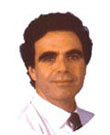The Association of American Medical Colleges http://www.aamc.org/research/coi/industryfunding.pdf came out with recommendations today that would ban all pharmaceutical company gifts to physicians and medical students, including items as inexpensive as pizza lunches for a doctor’s office.
Let me explain why banning pizza, pens, post-it-notes, and other "chachkes" for doctors won't accomplish anything. First of all, doctors and medical students should know better than to eat high cholesterol pizza. Secondly, it's not only one drug company that buys pizza for the doctors - every pharmaceutical company that has competing products buys pizza for the physicians and office staff - so the net result is no one company has an advantage in influencing doctors because they all buy the pizza! Perhaps the one that orders extra pizza toppings wins? (I'm partial to mushrooms if any pharma reps are reading this). If you think that banning pizza universally will reduce the cost of pharmaceuticals for consumers, then you've got your head buried in pizza dough. Drug companies will simply use the pizza savings for other forms of marketing like more extravagant booths at medical meetings, more distribution of peer-reviewed articles for off-label marketing, and more eDetailing. So, unless the government bans all pharmaceutical marketing by all companies there will be no net savings, merely a transfer of funds from one form of marketing to another. Additionally, the medical schools need to be careful about what they wish for since many of them receive up to 16% of their funding from pharmaceutical companies as revealed by this NPR survey done in 2005: http://www.npr.org/templates/story/story.php?storyId=4696316
So if doctors and medical students shouldn't accept pizza, then the medical school shouldn't as well. Right? Also, medical schools receive a great deal of funding for their Continuing Medical Education activities from pharmaceutical companies. See this report http://www.mmm-online.com/Pharma-pursued-safe-haven-for-its-CME-spend-last-year/article/24565/ "Medical schools and societies saw the highest commercial funding increase of any of the provider groups, drawing 8% and 7% increases, respectively." So medical schools should not accept CME funding from pharmaceutical companies - right?
And, in a study published in the Journal of the American Medical Association in October 17,2007, it was found that "two-thirds (60%) of department chairs had some form of personal relationship with industry, including serving as a consultant (27%), a member of a scientific advisory board (27%), a paid speaker (14%), an officer (7%), a founder (9%), or a member of the board of directors (11%). Two-thirds (67%) of departments as administrative units had relationships with industry." See the full article at http://jama.ama-assn.org/cgi/content/full/298/15/1779 So, all medical school department chairpeople should give up all of their pharmaceutical industry associations as well. Right?
'What Doctors Think' performed an online physician survey of 230 USA doctors in various specialties in January 2008 to determine what their views were on pharma and medical device company marketing. 60% of doctors believe that physicians should not accept any gifts from pharma reps, but 72% said that phsyicians were not improperly influenced or coerced by any gifts given. 55% of doctors were in favor of pharma companies being required by law to publicly post all gifts to physicians. The complete survey can be viewed at http://whatdoctorsthink.com/cgibin/comments.cgi?markettodoctors-results
In summary, to be fair, if you end pizza gifts to doctors, as per the recommendations of the Association of American Medical Colleges, then you should stop pharma from contributing ALL funding to medical schools. That would be a mistake since many schools derive great benefit from pharmaceutical company grants, funding, donations and other gifts. All that money would probably wind up being spent in DTC ads if they weren't given to doctors and medical schools. I'd rather eat pizza than see more DTC ads.
Robert Cykiert, M.D.
President,
WhatDoctorsThink.com
DoctorNet.com
Monday, April 28, 2008
Subscribe to:
Comments (Atom)
